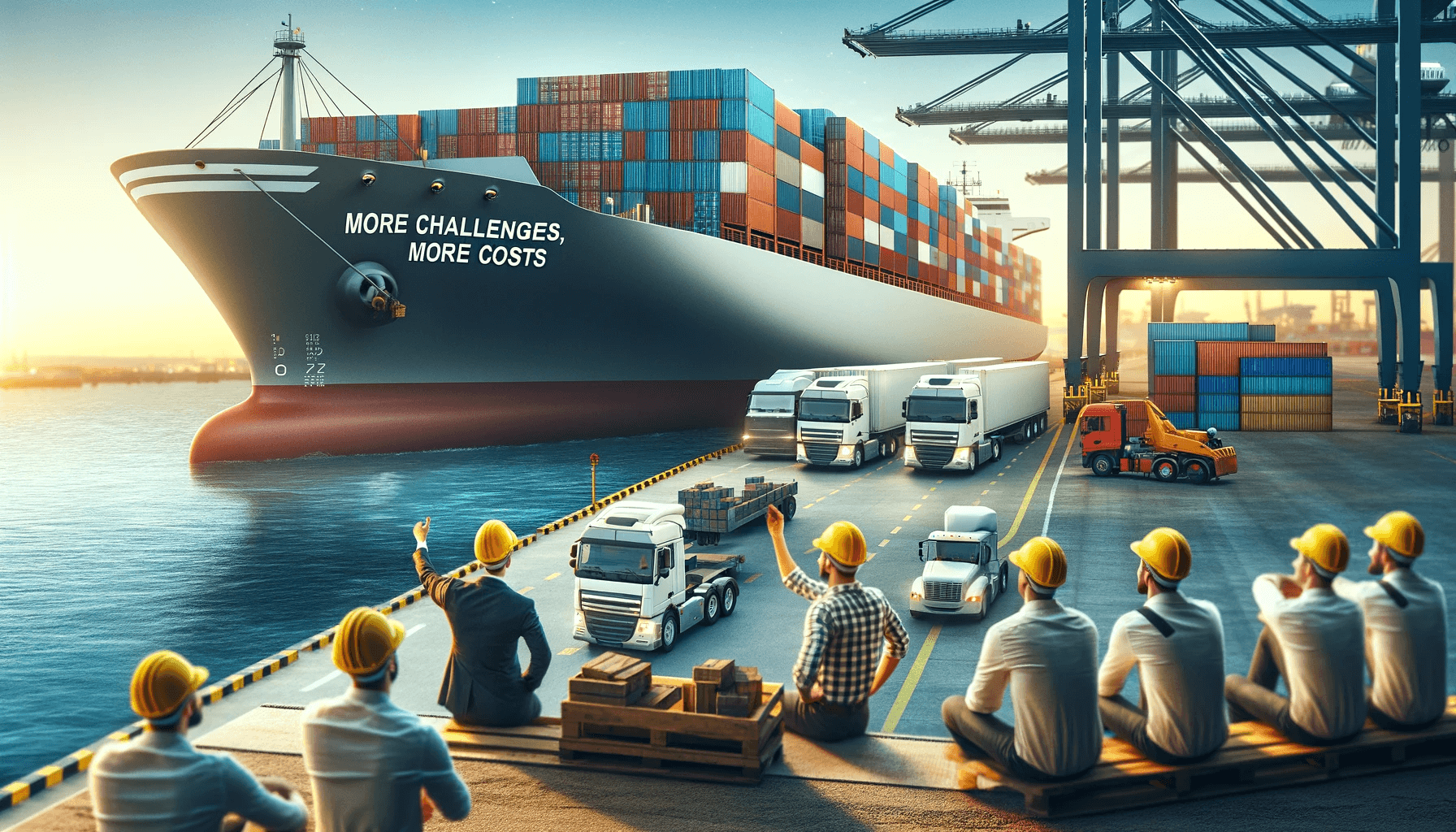In 2024, businesses and individuals face a critical decision when it comes to selecting the most efficient and cost-effective mode of transport. While maritime transport has long been a popular choice for its bulk capacity and international reach, recent trends and developments have put road transport in a favorable position. This article explores the compelling reasons why road transport is becoming an increasingly preferred option over maritime transport in 2024.
The Current Maritime Transport Crisis:
The maritime transport crisis, intensified by the 2021 Suez Canal blockade by the Ever Given, has exposed significant weaknesses in the global supply chain. Notably, transport tariffs surged during the COVID-19 pandemic and remained high post-crisis, heavily affecting the global economy and consumer spending. This has led to substantial economic impacts, including prolonged delivery times and rising prices, impacting consumers and businesses alike. In response to these challenges, marked by a surge in freight costs of up to 360% on some routes and severe port congestion, road transport has become a practical alternative, providing the needed adaptability and variety to navigate these maritime issues and maintain supply chain continuity.
Let’s explore Advantages of Road Transport in 2024 :
Flexibility and Speed:
Road transport offers unmatched flexibility compared to maritime transport. Trucks can provide door-to-door service without the need for intermediate handling, which is a common requirement in sea transport. This direct approach significantly reduces the risk of cargo damage and loss, ensuring safer delivery of goods. Additionally, road transport is not subject to the same scheduling constraints as ships, allowing for faster and more reliable delivery times.
Technological Advancements:
The year 2024 has seen significant advancements in road transportation technologies. Electric and autonomous vehicles are becoming more prevalent, offering eco-friendly and efficient transport solutions. These technologies not only reduce carbon footprints but also cut down on fuel costs, making road transport an economically viable option.
Improved Infrastructure:
Governments and private sectors have heavily invested in road infrastructure, making road transport more efficient than ever. Improved highways, intelligent transportation systems, and better traffic management have eased congestion and reduced travel times, enhancing the appeal of road transport.
Cost-Effectiveness:
For short to medium distances, road transport is often more cost-effective than maritime transport. The latter involves higher initial costs and longer transit times, which can be detrimental for time-sensitive goods. Road transport, on the other hand, offers more competitive pricing for shorter routes and smaller cargo volumes.
Responding to Market Demands:
The market in 2024 demands speed and agility. Road transport is better suited to respond to these changing market needs, providing businesses with the flexibility to manage just-in-time deliveries and adapt to fluctuating demand patterns. This level of responsiveness is challenging to achieve with maritime transport due to its longer planning and transit times.
Why is Cloudfret your Optimal Choice for Road Transport?
CloudFret is a promising partner for road transport for several reasons. The company aims to simplify and guarantee the transport of goods between Europe and Africa, connecting shippers to a large network of reliable carriers through a unique platform. With approximately ten million trucks in transit each year between Spain and Morocco, CloudFret is dedicated to streamlining this process. The company has also secured a significant order book, indicating a strong demand for its digitized road freight services. Furthermore, CloudFret has been recognized as one of the “Top 10 Logistics Tech Startups in Europe 2023,” highlighting its innovative and impactful approach to road transport .
Conclusion:
In conclusion, the choice between road and maritime transport in 2024 depends on various factors including distance, cargo type, cost, and urgency. However, given its flexibility, technological advancements, improved infrastructure, cost-effectiveness, and ability to meet market demands, road transport presents a compelling option for many businesses and individuals. As the global economy continues to evolve, it’s clear that road transport will play an increasingly vital role in the logistics and transportation sector.
Related Articles:
